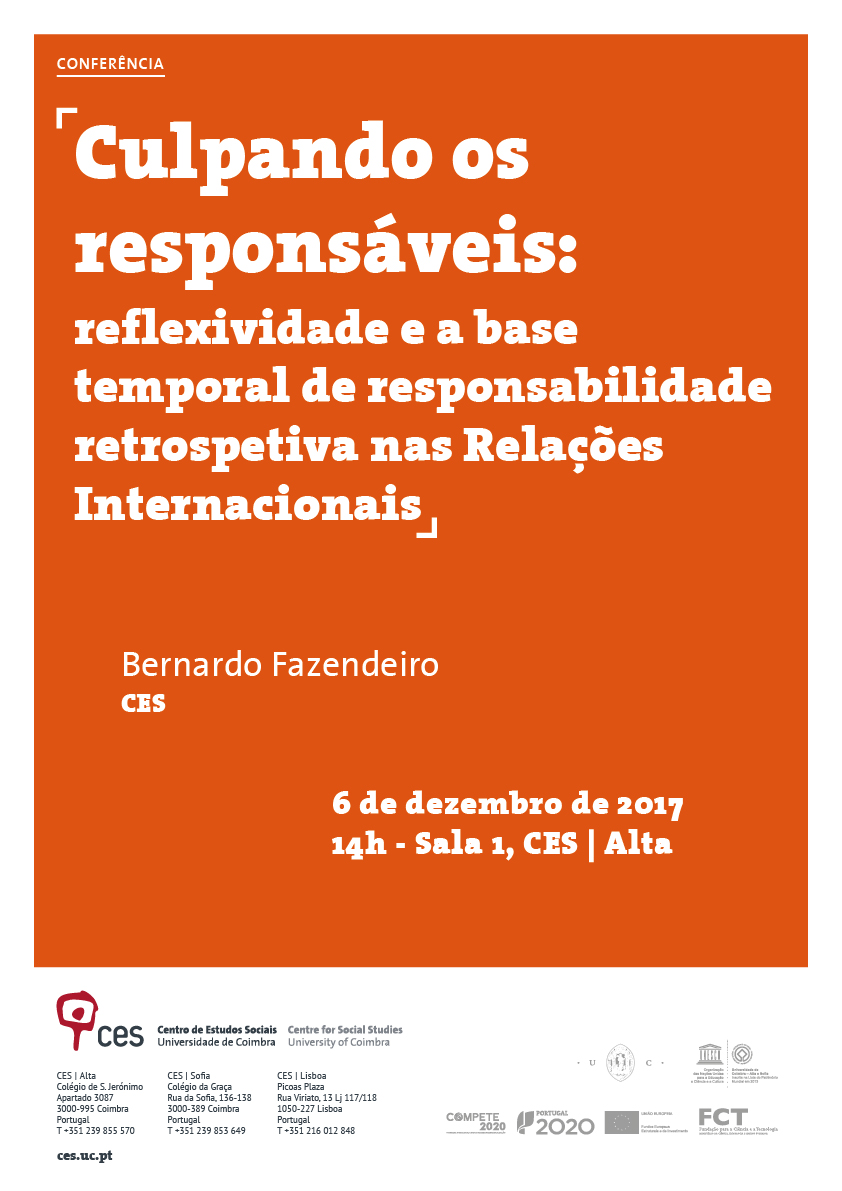Lecture
Blaming the liable: reflexivity and the temporal basis of retrospective liability in International Relations
Bernardo Fazendeiro (CES)
December 6, 2017, 14h00
Room 1, CES | Alta
Abstract
Exposing the problematic consequences of three temporal modes of international political characterization, especially in matters of continuity and change, brings to light a mediated and reflexive perspective of events - a perspective more open to divergent visions of retrospective liability and less associated to blame exchange between agents, authors, analysts and students of International Relations. In this sense, the lecture will begin by outlining the limits of the so-called IR “agency and structure” debate, asking instead for a view that valorises the links between notions of change and continuity and the consequent effect on retrospective liability, that is, regarding imputation of fault and/or praise for the event after consummation. Subsequently, three temporal visions of IR are presented, in which the issue of retrospective liability is emphasized. The lecture concludes with a brief analysis of the impact of temporal characterization on different versions of the annexation of Crimea by Russia in 2014, and their impact in terms of retrospective liability. In order to take a more reflective perspective, concepts of experimental openness by Hans-Georg Gadamer are seen as an alternative to the mere, almost unreflective, application of temporal assumptions.
Bio note
Bernardo Teles Fazendeiro holds a PhD in International Relations at the University of St. Andrews in 2013, specializing in Uzbekistan's foreign policy and "role theory". He later lectured at St Andrews and the Central European University. He published a book on foreign affairs in Uzbekistan (Routledge, 2017) and articles in the journals International Studies Review, International Affairs and Central Asian Survey.


